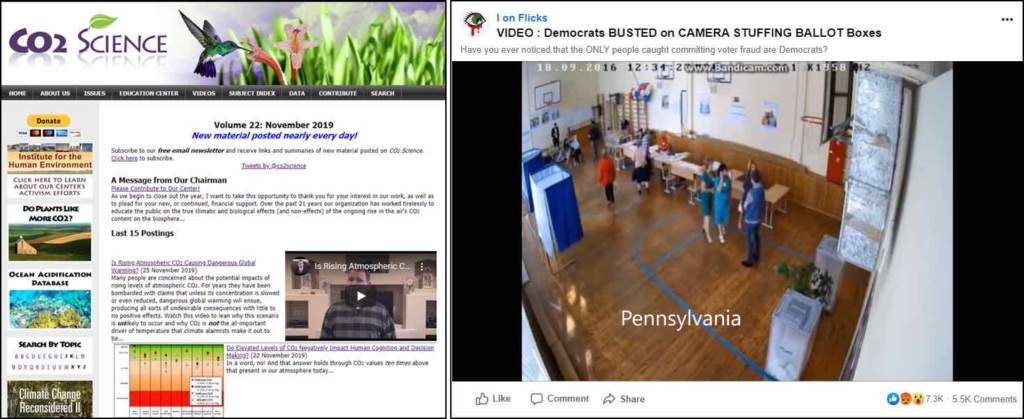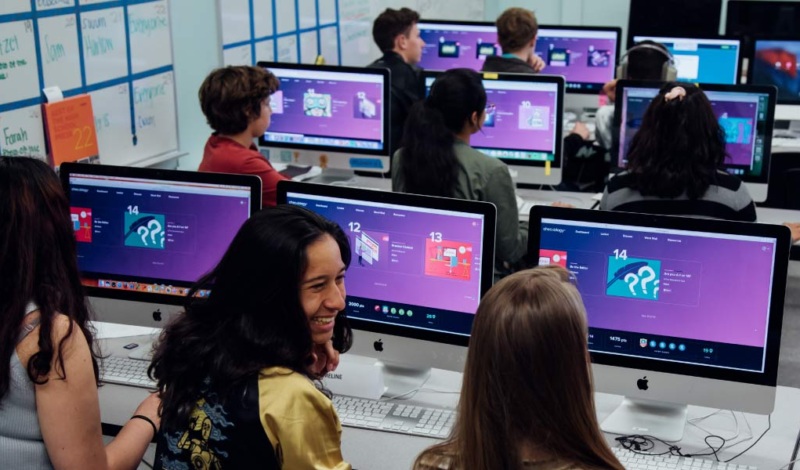
Study: Students show ‘troubling’ lack of news literacy skills
A new report from the Stanford History Education Group has found little change in high school students’ ability to evaluate information online since 2016, when SHEG researchers released the results of a similar study.
This skill set — dubbed “civic online reasoning” by Stanford researchers — consists of the ability to recognize advertising, including branded content; to evaluate claims and evidence presented online; and to correctly distinguish between reliable and untrustworthy websites and other sources of information. (The executive summary of the 2016 study summed up “young people’s ability to reason about the information on the Internet” in one word: “bleak” — and the executive summary of the latest report acknowledged that “the results — if they can be summarized in a word — are troubling.”)

Two examples from the latest SHEG study: a website sponsored by the fossil fuel industry (left) and a video of Russian voter fraud presented out of context as Democratic voter fraud in the United States. Click the image to view a larger version.
For the latest findings, SHEG partnered with Gibson Consulting, an education research group, to assess 3,446 high school students from 16 school districts in 14 states. The students in the sample matched the demographic profile of high school students in the United States.
The researchers asked the students to complete six assessments with five distinct tasks, then assigned each response one of three ratings: Beginning (incorrect or showing use of “irrelevant strategies for evaluating online information”), Emerging (partially incorrect, or not fully showing sound reasoning) and Mastery (effective evaluation, reasoning and explanation).
A task asking students to evaluate the reliability of co2science.org, a website about climate change run by a group funded by fossil fuel companies, had the lowest scores. Fewer than 2% of student responses were given a Mastery rating; more than 96% were rated Beginning. In another task, students were presented with a Facebook post from a user named “I on Flicks” containing a video compilation that purported to show Democrats committing voter fraud during the 2016 Democratic primaries but was actually a collection of videos showing ballot-box stuffing in Russia. When asked if the video presented strong evidence of voter fraud in the United States, more than half (52%) said that it did. Only three respondents — 0.08% of the students surveyed — were able to find the source video.
Other tasks asked students to identify the ads on a screenshot of Slate’s homepage and to compare the usefulness of two webpages — a page containing the text from “10 Myths About Gun Control,” a brochure published by the National Rifle Association’s Institute for Legislative Action, and the Wikipedia page for “gun politics in the United States” — as a starting place for “research on gun control.”

